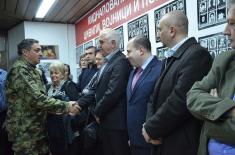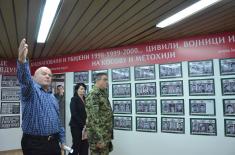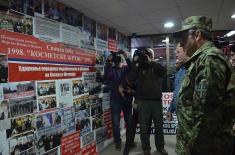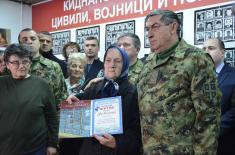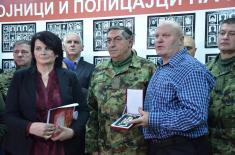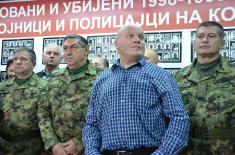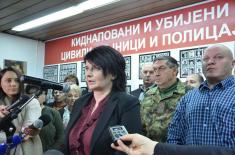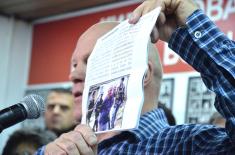11.01.2018.
Chief of General Staff Visited Memorial Room “Kosmet Victims”
Chief of General Staff of the Serbian Armed Forces General Ljubiša Diković visited today the memorial room “Kosmet Victims”, which the Association of the families of the kidnapped and killed in Kosovo and Metohija opened in 2016 in the Beograđanka building.
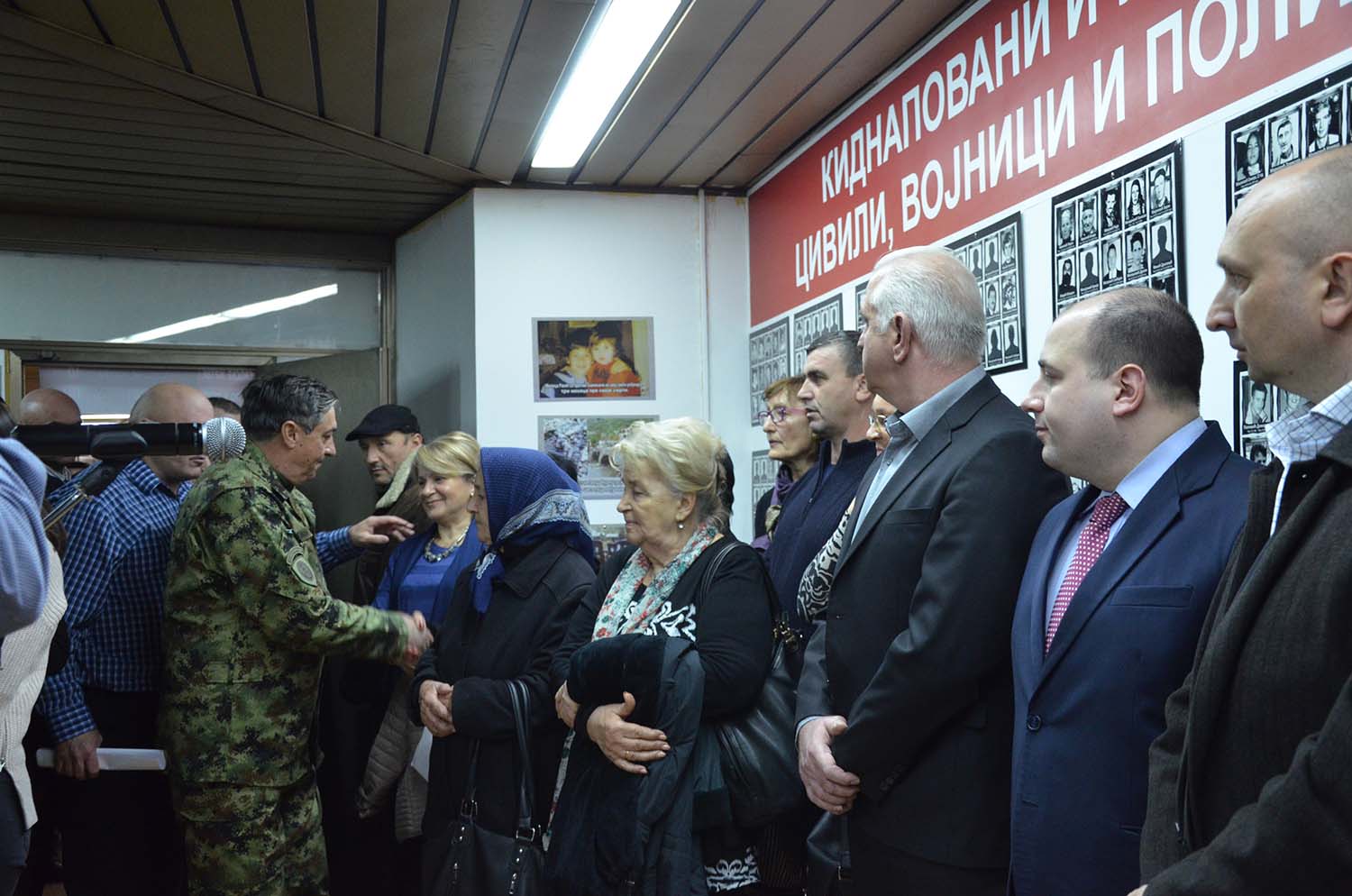 The memorial area is dedicated to memory of the kidnapped and killed in the southern Serbian province from 1998 to 2000 and from 2003 to 2004.
The memorial area is dedicated to memory of the kidnapped and killed in the southern Serbian province from 1998 to 2000 and from 2003 to 2004.General Diković, after talking to the families of the victims, said that the memorial room was a place of sorrow for our heroes but it was at the same time the place of pride „for having had such people who gave their lives to defend Kosovo and Metohija“.
- Touring the exhibition, among the heroes and brave men, I saw my deceased soldiers, who, as the other heroes, must not pass into oblivion, and that will never happen, not even when we speak about the generations that will live in this area after us – General Diković said and added that the victims must not be futile and he “paid homage” to those as well who, as he said, fight even today to defend Kosovo and Metohija.
Chief of the General Staff thanked the Association for their great persistence and perseverance so that the truth can come out, and so that the horrible crimes are not forgotten and so that they are punished.
- It is a hard and gruelling struggle that has been lasting for almost twenty years, but we hope that we will arrive at the truth, and then the justice will follow. Let us remind ourselves that the majority of people, some 75 per cent, were kidnapped after the arrival of KFOR forces in Kosovo and Metohija. Around 5 per cent during the armed rebellion and the NATO aggression and 20 before the start of the armed rebellion and the NATO aggression, and may everybody bear his share of responsibility – General Diković said and added that he himself participated in that “heroic fight in the area of Kosovo and Metohija”.
- Even today, they single me out and call me a criminal, and those who committed the crimes still elude the justice. This is an opportunity for me to once again repeat at this place, in the face of God and in front of all the people here and all the nation, that I committed not a single crime nor did I order it, nor did I in any way exerted influence that led to a crime. On the contrary, all the commanders in the area of Kosovo and Metohija, I and all other commanders and all those who were leaders in any way, we all did everything in our power to prevent the crimes and to stop them from happening. I am ready to answer, on behalf of everybody, for something that someone else did, but I am by no means ready to answer for something that I personally did because I have nothing to answer for. Our generals and commanders, who were punished, neither ordered nor committed the crimes and I have never received any order which in any way directed doing something inhumane towards the civilians in the area of Kosovo and Metohija.
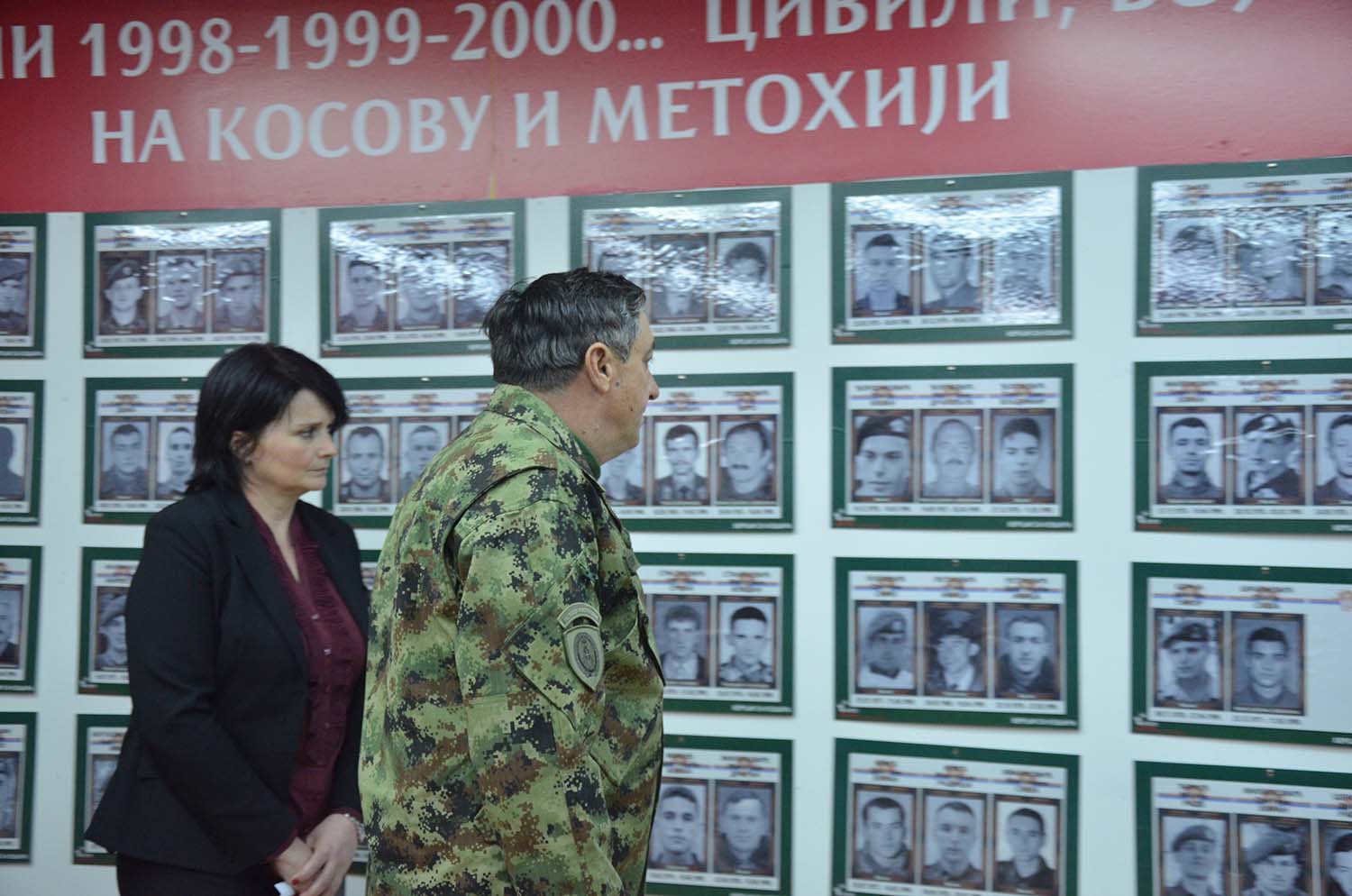 On the contrary, every decision, every order stated that we were to act humanely, in accordance with the customs of war. That is the truth that I wish to say at this place – General Diković said and sent a message to the parents and relatives of the kidnapped soldiers, civilians and policemen to be persistent and he told them that they had the support of their armed forces and that he hoped that together they could arrive at the whole truth.
On the contrary, every decision, every order stated that we were to act humanely, in accordance with the customs of war. That is the truth that I wish to say at this place – General Diković said and sent a message to the parents and relatives of the kidnapped soldiers, civilians and policemen to be persistent and he told them that they had the support of their armed forces and that he hoped that together they could arrive at the whole truth.General Diković, who advocated that all the victims, regardless of who’s they were, had to receive justice, because “all the mothers cry the same”, presented the coat of arms of the Serbian Armed Forces to the Association of families of the kidnapped and killed in Kosovo and Metohija, “for the struggle that they have been carrying on with so much strength for the truth about Kosmet victims” and he promised them that the Serbian Armed Forces would always be with them.
The President of the Association Simo Spasić, thanking the General for answering the call to visit the Memorial room, showed the exhibition to the General and informed him about the activities of the Association in connection with resolution of the status of the families of civilian victims and the monument to be erected in memory of all the victims from Kosovo and Metohija.
He pointed out that the Memorial room “Kosmet Victims” had opened eyes to many statesmen of Serbia, European Union and the whole world.
- If we had not done it, we would have committed a great sin, and at least the approximate number of civilians, soldiers and policemen kidnapped and killed by Albanian criminals and NATO aggressors would not have been known – Spasić said and reminded that the Memorial room included the victims from Košare to Horgoš.
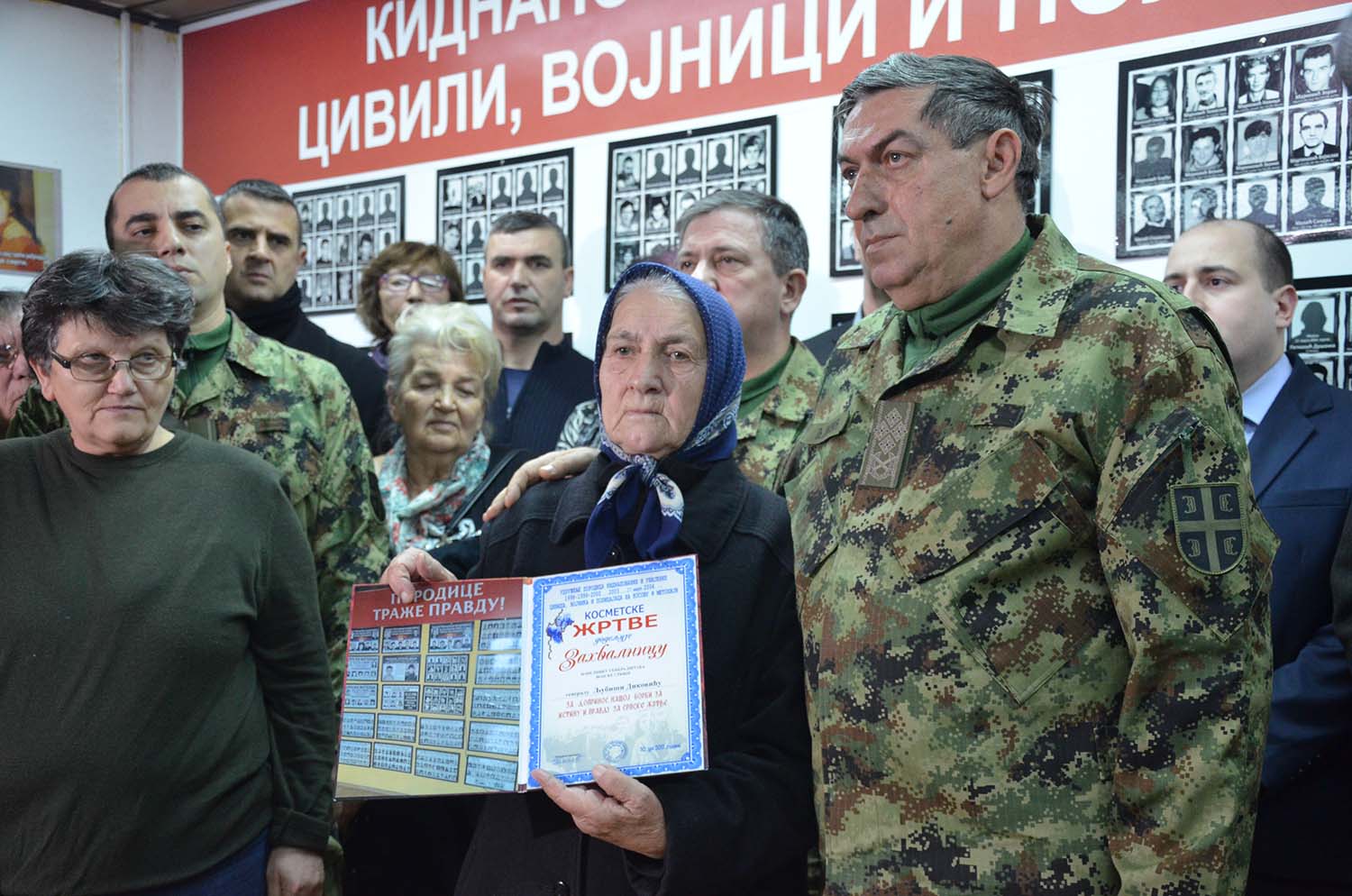 He pointed out that the people in Kosovo and Metohija during the hardest days, much like today, had enjoyed great support of their armed forces and that the citizens had always felt great respect for the members of the armed forces.
He pointed out that the people in Kosovo and Metohija during the hardest days, much like today, had enjoyed great support of their armed forces and that the citizens had always felt great respect for the members of the armed forces.Spasić called for more active media involvement in the resolution of the problem of the kidnapped and missing and in the communication of the truth about the crimes committed against Serbs in Kosovo and Metohija.
Snežana Marković Zdravković, representative of the Association said that almost 20 years of pain and sorrow had passed.
- My father was kidnaped and killed, and my brother was kidnapped; we will never forget the victims and we will always fight for them - Snežana Marković Zdravković said.
Association of the families of the kidnapped and killed in Kosovo and Metohija presented a scroll of honour “We will remember the Kosmet victims” to General Ljubiša Diković, who, as they pointed out, with his armed forces, their fathers, brothers and sons, had defended the holy Serbian land of Kosovo and Metohija. The scroll of honour was presented by a mother, Slobodanka Krstić, who had lost two sons.
The exhibited photographs in the Memorial room “Kosmet Victims” portrayed more than 2500 kidnapped and killed civilians, soldiers and policemen of Serbian, Romany, Gorani nationality, while 26 photographs portray the Albanians who worked in Police.
 PHOTOGALLERY
PHOTOGALLERY
